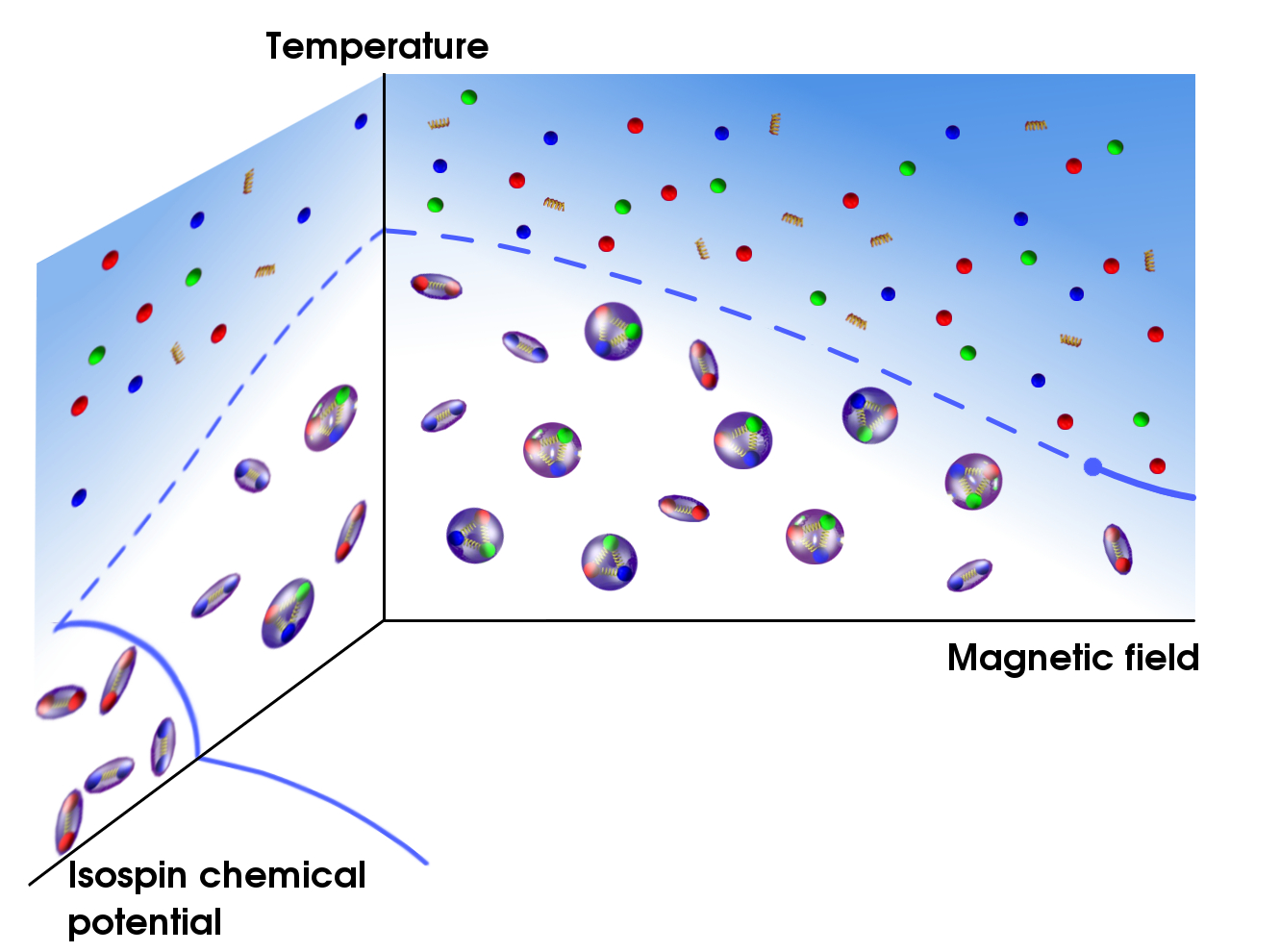For students
Research group of Gergely Endrődi

Topic
Quantum Chromodynamics (QCD) is the theory of the strong interactions that explains how the proton or the neutron (hadrons) are built up from elementary particles - quarks and gluons. QCD has a rich phase diagram: it exhibits among others a low-energy phase with hadronic degrees of freedom and a high-energy phase, where quarks are deconfined and the so-called quark-gluon plasma is formed. Detailed knowledge of this phase diagram help us understand the physics of various systems ranging from dense neutron stars through the early universe to heavy-ion collisions. The relevant parameters of the theory include the temperature, densities and background fields. The currently most successful approach to study the QCD phase diagram is via numerical Monte-Carlo simulation of the theory, discretized on a space-time lattice.

Within our research group, we use lattice simulations to determine the yet uncharted regions of the QCD phase diagram at nonzero (isospin) densities and background electromagnetic fields.
Thesis projects
Bachelor and master students looking for a thesis topic are welcome. We offer projects involving programming/implementation tasks, numerical work as well as analytical (for example perturbative) calculations. Please approach me if you are interested and think about which kind of task would suit you best. Below you can also find a list of theses that are currently under study or that were recently completed in our group.
BSc theses
- Ward identities with staggered quarks
- Improvement of noisy estimator techniques in lattice QCD
- Effective sampling algorithms in lattice QCD
- QCD phase diagram with imaginary isospin chemical potential via pertubation theory
- Hofstadter's butterfly for inhomogeneous magnetic fields
- Dense and magnetized QCD using the hadron resonance gas model
- Anomalous transport phenomena with Wilson fermions
- Topological susceptibility in isospin-asymmetric QCD
MSc theses
- Roberge-Weiss transitions for three quark flavors
- Hadron resonance gas model in a background electric field
- Lattice QCD discretizations at nonzero chemical potential
- Measuring the Nf=2+1 chiral condensate using low fermionic eigenvalues for different quark masses
- Lattice computation of pion properties at finite isospin chemical potential
- Eigenschaften von Pionen bei endlichem chemischem Potential aus der chiralen Störungstheorie
- One-sided derivatives to avoid fermion doubling
- SU(3) center clusters in the presence of magnetic fields